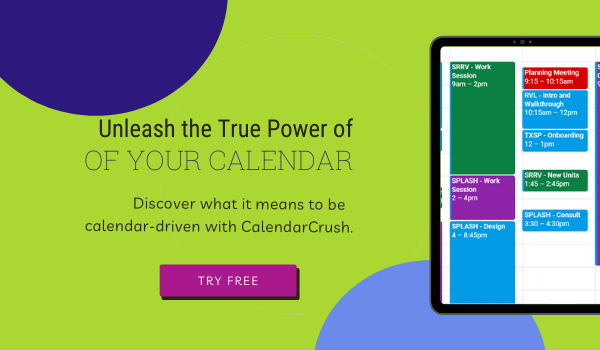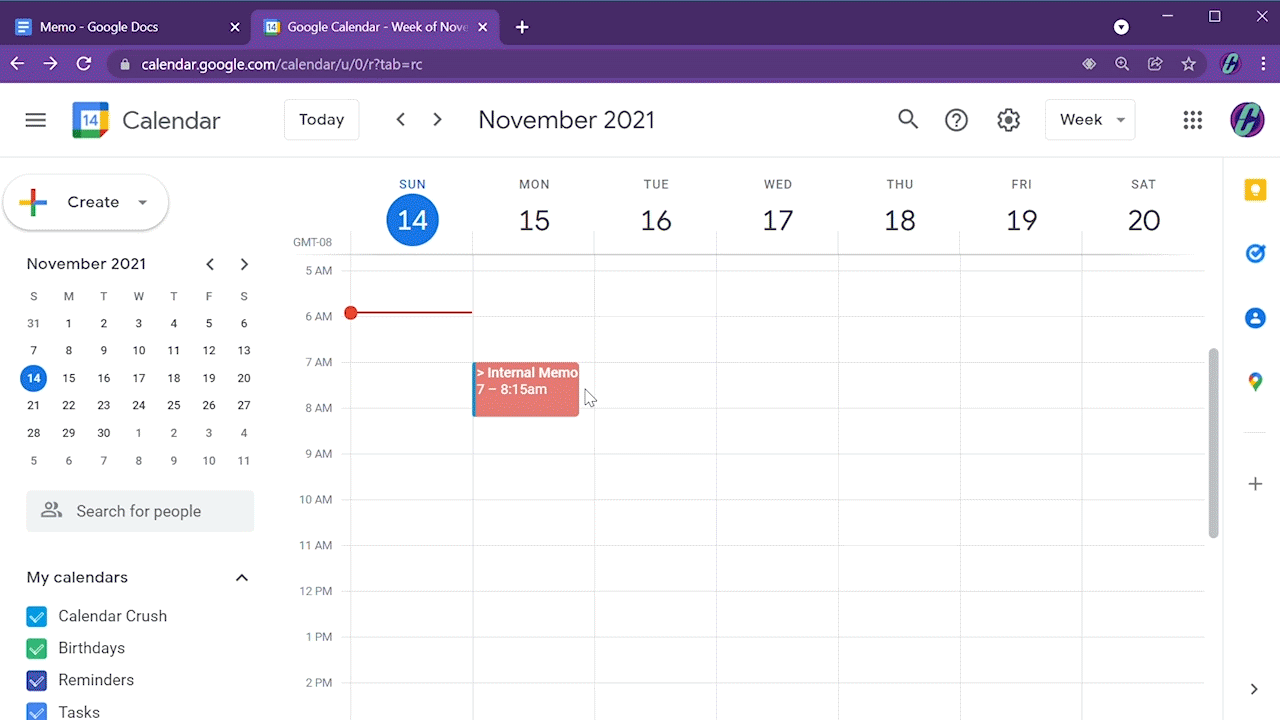You live and die by your calendar. Your time provides value to your clients and, in turn, is money in your pocket.
Then, why are you wasting time doing non-billable tasks such as re-inputting calendar entries into timesheets and spreadsheets? Why do you use valuable time going from your calendar to time tracking apps to time capturing devices and then turning around and converting odd minutes and seconds into 15-minute intervals before you can begin the invoicing process?
What if I told you that you already have and use the most important tool you need to turn billable events into money as well as stay organized and, possibly, find more time to convert into cash or maybe just a bit of sanity?
You do. It’s your calendar.
[NOTE: Your calendar + CalendarCrush = more time. Get crushing for free.]

Traditional Calendaring
Traditionally, calendars are used to schedule future events and appointments whether it be lunch with an important client or your best friend’s birthday dinner. You create and invite others to these events as well as accept calendar events others invite you to.
More advanced calendar users also schedule time with themselves to focus on a project or go for a run, for example. Doing so ensures you have time to do the important tasks that help you finish your work on time and stay healthy enough to get up another day and do it all over again.
Calendar-based Invoicing
It’s time to start thinking of your calendar in a new way.
In addition to scheduling future events, your calendar can also be used as a diary or log of past events that were not previously scheduled.
For example, you’re in the middle of writing a memo and a client calls. You talk for 9 minutes during which time you schedule a conference call with that client and two other people, and then get back to writing your memo. Instead of hitting a time clock or opening a timesheet, simply add a 15-minute entry to your calendar (don’t forget to use a meaningful calendar title) that you already have open to log the billable time you spent on the phone.

Adopting calendar-based invoicing practices such as this is not only more simple and efficient, it also provides accountability—you know exactly what you were doing when the event occurred, what time it happened, and can easily show that you were not double-billing if asked to do so.
Don’t just live and die by your calendar—own it!
“Either you run the day, or the day runs you.” Jim Rohn




